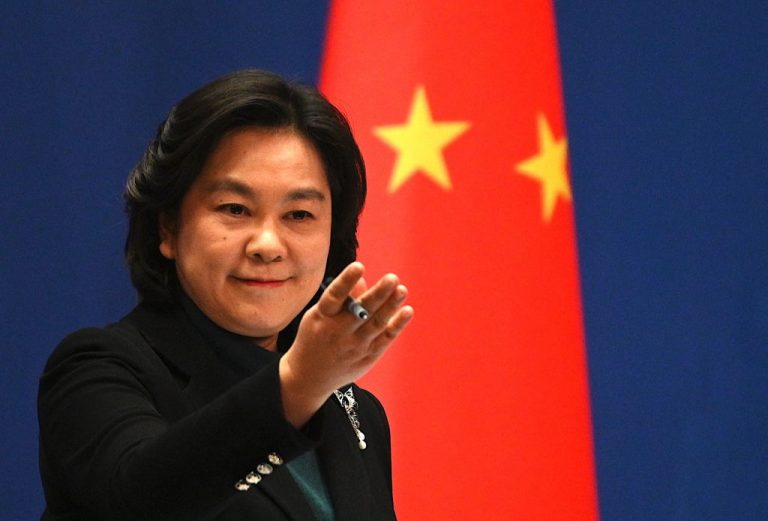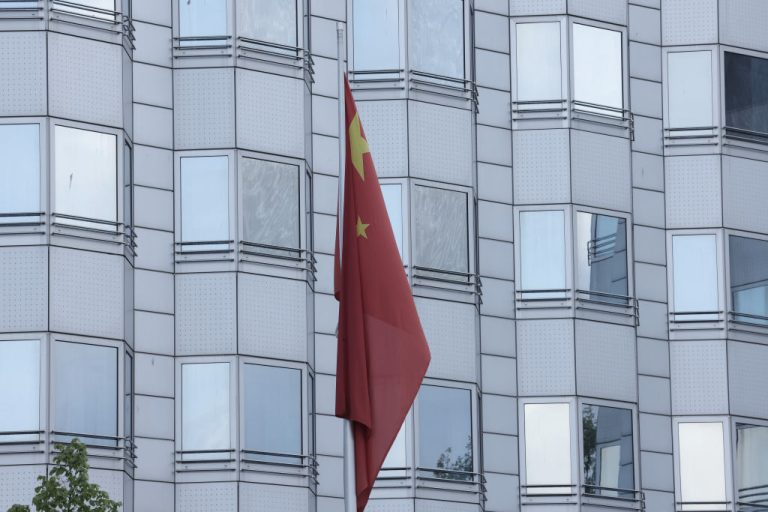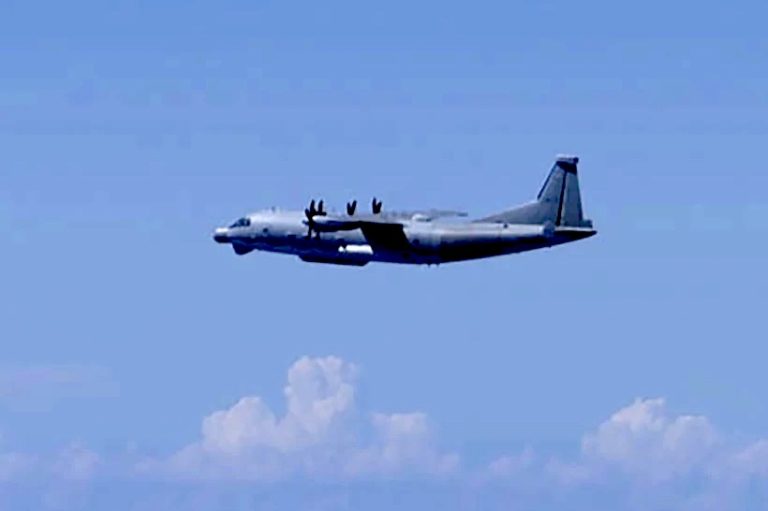Following Russia’s attack on Ukraine, China’s embassy in Kyiv told its citizens residing in the country to stay home or at least take the precaution of displaying a Chinese flag on their vehicles if they need to drive anywhere.
The situation in Ukraine has deteriorated sharply and security risks have risen, with “social order potentially descending into chaos,” the Chinese embassy warned.
“The Chinese flag can be affixed to an obvious place on the body of the vehicle,” the embassy said in advice to any nationals who decide to venture out during this perilous time.
Russian President Vladimir Putin announced an attack on Ukraine this morning (Feb. 24), and explosions in Kyiv and other cities in Ukraine followed. Ukraine’s military claimed to be engaged in fighting within its borders and Ukrainian President Volodimyr Zelenskyy described the violence as an “invasion to destroy the country.”
By the end of the day, Russian troops had completed their planned objectives up to that point, the Kremlin said.
Zelensky to Russia: Ukraine will not ‘cede its freedom’
The Ukrainian president on Feb. 24 had addressed the people of Russia in an effort at peace, but his attempts to reach out to Putin were met with silence.
“Today I initiated a telephone conversation with the President of the Russian Federation. Silence. Although there should be silence in the Donbas,” Zelensky said, urging residents to seek shelter immediately and to try and remain calm.
“Ukraine is defending itself and shall not cede its freedom, whatever they might think in Moscow.”
Zelensky also announced that all diplomatic relations between Russia and Ukraine had been severed and compared Russia’s attack to what “Nazi Germany did during the Second World War,” adding that “From today, our countries are on opposing sides of world history.”
Also on Thursday morning, Zelensky declared that martial law had been introduced across the country. The U.S. has estimated that Kyiv will fall within four days, while both Washington and the NATO military alliance have confirmed that they will not send troops to aid Ukraine.
China blames the US for inciting ‘fear and panic’ over Ukraine
Meanwhile, China’s Foreign Ministry spokesperson Hua Chunying said on Feb. 23 that China is opposed to new unilateral sanctions imposed on Russia – reiterating a longstanding Chinese position and showing Chinese leader Xi Jingping’s bias towards Moscow.
Hua said the U.S. was fueling tensions by providing defensive weapons to Ukraine, without mentioning Russia’s deployment of approximately 200,000 troops on the Ukrainian border that were stationed for weeks prior. Hua also did not mention efforts by the U.S., France and NATO allies in trying to engage with Russia diplomatically.
Success
You are now signed up for our newsletter
Success
Check your email to complete sign up
“To correctly and objectively understand the Ukraine situation and seek a rational and peaceful solution, it is necessary to understand the merits of the Ukraine issue and properly address relevant countries’ legitimate security concerns on the basis of equality and mutual respect,” Hua said.
She also added that sanctions imposed on Russia by the U.S. and others have been ineffective in reducing tensions while causing “serious difficulties to relevant countries’ economies and livelihoods.”
“The U.S. should never undermine the legitimate rights and interests of China and other parties when dealing with the Ukraine issue and relations with Russia,” Hua said.
Beijing: Russia’s security concerns ‘legitimate’
In support of Russia’s provocations towards Ukraine, China’s Foreign Minister Wang Yi also told reporters during a daily press briefing that the Kremlin’s security concerns were “legitimate,” and should “taken seriously and addressed.”
China has strengthened its alliance with Russia in recent years, and the two countries have become increasingly active economic partners. Trade between China and Russia has grown from $10.7 billion in 2004 to $140 billion by 2021, according to a study published by the Carnegie Moscow Center think tank.
In addition, the two countries have also cooperated on joint naval drills and airspace surveillance in what the Chinese Foreign Defense Ministry has called “further developments of the China-Russia comprehensive strategic partnership of coordination for the new era.”
Earlier this month, Chinese leader Xi Jinping hosted Putin at talks in Beijing and the two world leaders attended the Beijing Winter Olympics opening ceremony together. In addition, the two sides issued a joint statement backing Moscow’s opposition to a “NATO expansion in former Soviet republics” and reiterated China’s claim to the self-governing island of Taiwan.







